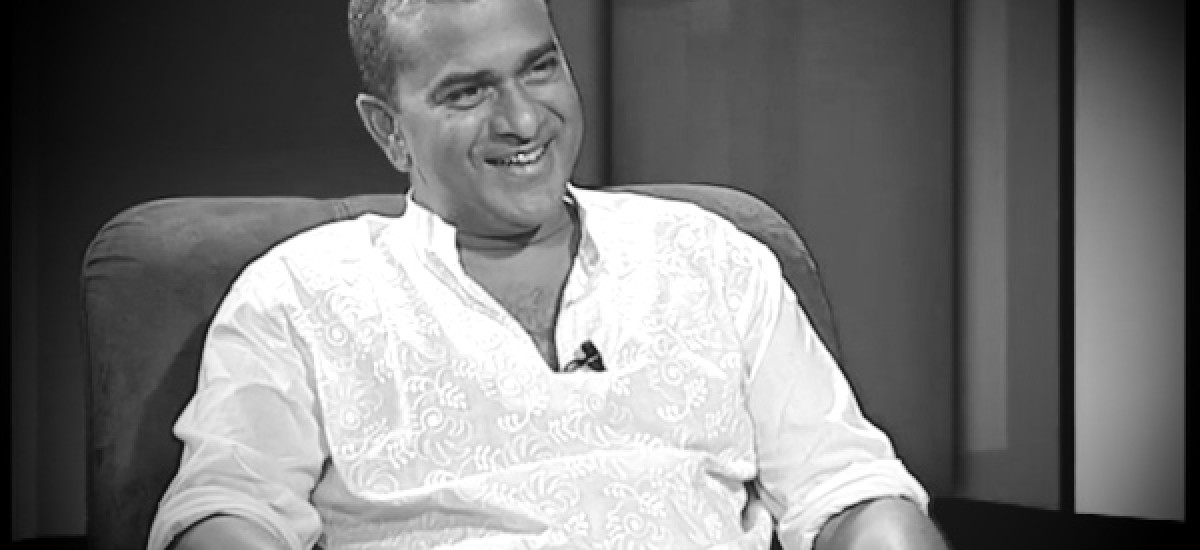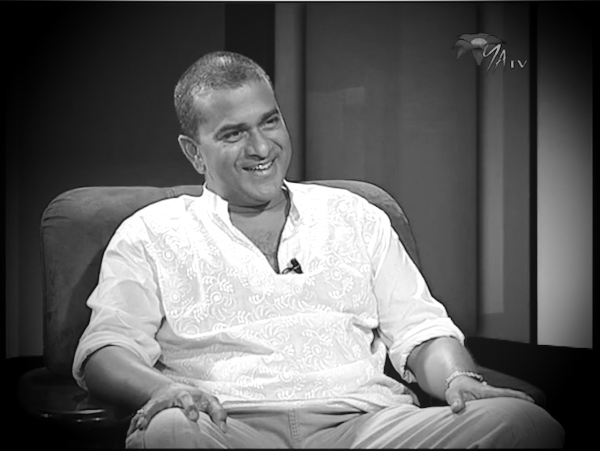Sam Perera, along with Ameena Hussein (see interview here) began the Perera Hussein Publishing House, a niche publisher based in Sri Lanka known to publish some of the most compelling contemporary writing in English.
Sam, who thinks of all things, he is a farmer at the beginning of the programme opens up the conversation with reforestation. The link to the world of publishing lies in that fact that, as a private initiative, PH Publishing House plants at least one tree per book they publish in Puttalam. Noting that PH Publishing House was established to publish stories by Sri Lankans for Sri Lankans, Sam’s rather interesting take on what he does is that the local consumer / reader doesn’t necessarily want literature, but stories that are written well – of course judged by none other than Sam himself. When pressed on what he considers good or great literature, Sam points to Randy Boyagoda’s writing, and says that even though he is Canadian, he writes about Sri Lanka very well, which encouraged PH Publishing House to bid for and get the local publishing rights for his latest book, The Beggar’s Feast.
We also go into what to Sam is an authentic Sri Lankan voice, comparing the writing of Michael Ondaatje with Carl Muller and the challenges of publishing in English for what is a very small market in Sri Lanka. We also talk about access to international markets for a publisher based in Sri Lanka and how exchange control regulations and other systemic problems bedevil growth and expansion. Later on in our conversation, Sam flags just how small the English reading market is by noting that on average, one would be lucky to sell 250 copies of an English book. He also notes that post-war, discretionary spending on books hasn’t really improved.
Sam often calls PH Publishing House ‘cool’ and I ask him to define what this means, and how this has helped him bring out books that in his own words command instant name and brand recognition. We talk about the challenges of publishing in Sinhala and Tamil, and how these markets, in interesting ways, differ quite significantly from the English language market. As a publisher, I go on to ask Sam what kinds of books and issues he would not published, and also what kind of writing he would like to see more of, which also takes Sam to describe in more detail the kind of writer he likes to work with as well.
We talk about the shift to ebooks (Kindle based for example) and Sam’s take on this is pegged to the rising price and scarcity of real estate, which will he thinks over time drive the public to digital books which require no physical storage space over actual printed books, which unsurprisingly he says he is partial to given their tactile feel, smell and presence.
I ask Sam how PH Publishing House goes about selecting a manuscript for publication – whether both Sam and Ameena read the same manuscript and then come to a decision, plus what they do if they disagree on the merits of a manuscript. Sam also has some revealing insights into the standard of English in schools, and differences between government and private schools. We end with Sam answering a challenging question posed to him on what, if anything he can do to improve English reading, and reading of literature in general, in Sri Lanka post-war, where we arguably have more space for quiet reflection.


